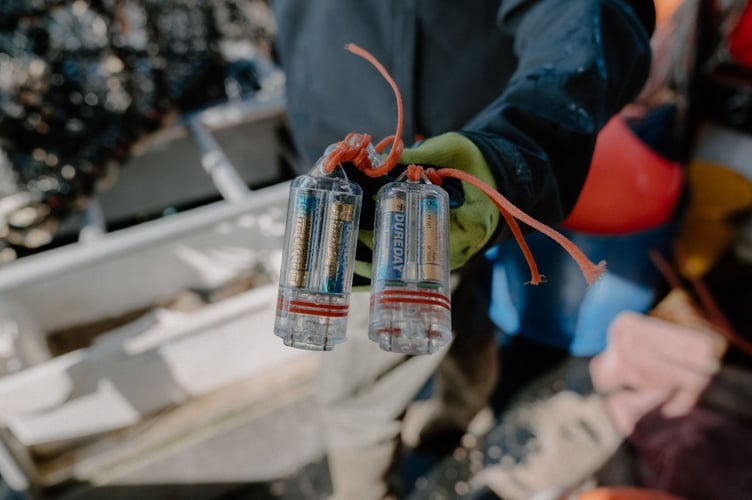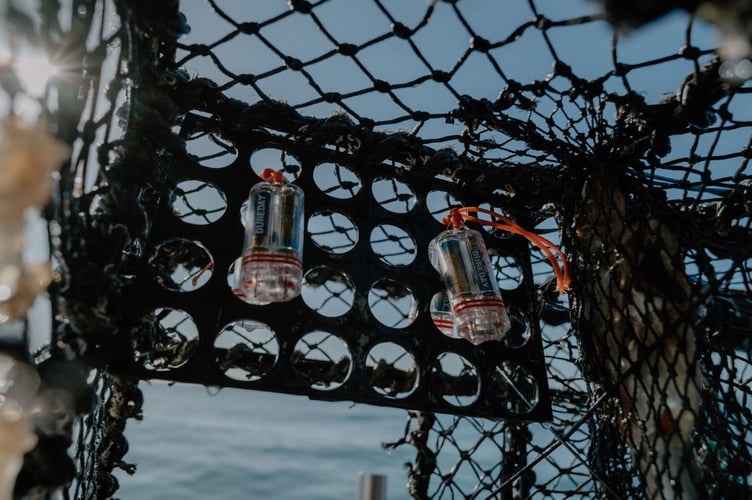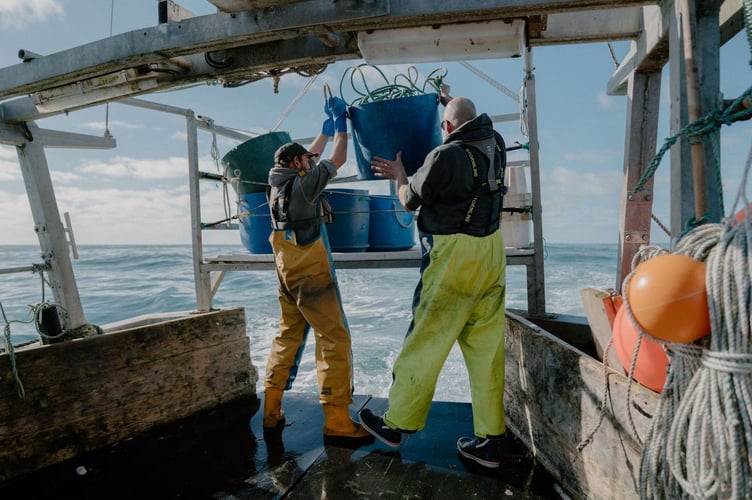Marine scientists in Totnes have accidentally discovered an unusual technique for catching scallops that could potentially reduce some of the damage caused to seabeds by fishing.
Totnes-based fisheries consultancy Fishtek Marine uncovered a new environmentally friendly way to catching scallops using innovative illuminated pots, dubbed ‘scallop discos’.
Most commercial scallop harvesting is carried out using dredges - a fishing method known to cause extensive harm to sensitive marine habitats and species.
But Fishtek’s new discovery paves the way for a new way to catch scallops that doesn’t harm the ocean bed.
The marine scientist Dr Rob Enever and his team made the discovery while trialling small underwater ‘potlights’ they designed to help protect fish stocks by replacing the need to use fish to bait crab and lobster pots.
Working with Newlyn-based fisherman Jon Ashworth off the Cornish coast, the scientists discovered the LED lights, were proving irresistible to scallops, which have up to 200 eyes, and were attracting unprecedented numbers of them.
Scallops jump into pots with ‘disco’ lights in potential new fishing strategy – video
Dr Enever said: “I couldn’t believe my eyes. I was sceptical that it would work, but the first time we hauled the pots and saw the scallops inside we knew we had discovered something significant.
“It was so exciting that I could hardly sleep for a couple of nights.”
Jon, skipper of the FV Three Jays, added: “The first day out was just excitement after excitement.
“Pretty much every pot that we hauled had scallops in them and yet every haul without lights had no scallops. It was conclusive, there and then.
“To have proven that lights can be used to catch scallops has got to have some awesome implications looking forward.”

The team tested several pot designs and proved their potlight technique consistently attracts scallops.
Dr Enever believes their discovery is just the beginning of an exciting work programme which, with further development, could transform commercial scallop harvesting.
In further experiments, a total of 1,886 pots were hauled – 985 experimental pots with lights caught 518 scallops; 901 control pots without lights caught only two. Overall, 99.6% of scallops were caught in pots with lights.
This research is outlined in a peer-reviewed paper published in the Journal of Fisheries Research this week.

Pete Kibel, Fishtek director, said: “The potential of this new approach to scallop harvesting is massive, offering notable benefits to the marine environment while creating a new commercial opportunity to fisheries around the world.
“Ultimately, the success of the trial is further evidence that collaboration between industry, scientists and government bodies can drive product innovation and underpin sustainable fishing efforts.”
With the help of local fishermen, pot makers and scientists from the Universities of Exeter and York, the Fishtek team are trailing different pot designs to attract scallops, including one with different coloured lights.

Powered by two rechargeable AA batteries, each small potlight is secured inside the pot and is expected to last between five and 10 years.
Bryce Stewart, senior lecturer at the University of York hailed the discovery one of the “most exciting” of his career.
“We knew scallops were sensitive to light, but not that they could be attracted in this way. These findings have the potential to provide a valuable and low impact boost to inshore fisheries,” he said.
Fishtek now plans to work with other inshore fishermen around the UK to develop the scallop potting technique with the aim of establishing a commercially viable low impact fishery.
Suzanna Neville, Seafood Innovation Fund programme manager at Cefas, said: “This is an important project that has the potential to make a real difference to the sustainability of the scallop fishery. ”
Fisheries Minister, Victoria Prentis, said: “It is great to see Fishtek Marine benefiting from our Seafood Innovation Fund, and developing a world-first method for catching scallops in an environmentally sustainable way.
“The funding is supporting innovation, helping industry use cutting edge technology and protecting the marine environment.”





Comments
This article has no comments yet. Be the first to leave a comment.